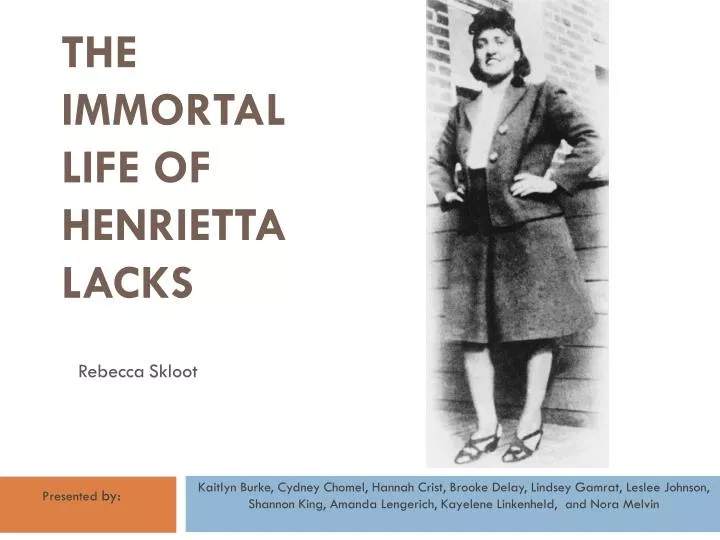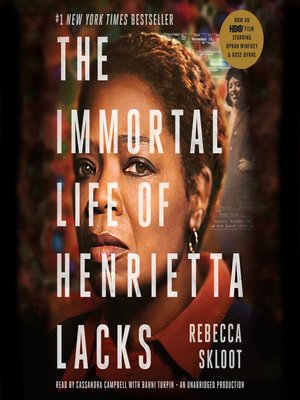
Because of a viral infection, one day he went from being my healthy marathon-running dad to being incapacitated.

She never knew her contribution to medicine, but it seems to be significant.When I was 16, the year I first learned about HeLa cells, my father got very sick. I’m in agreement with this but am still glad that in this case, Henrietta Lacks was identified and that through the efforts of Rebecca Skloot that I have a better picture of who Henrietta was. Today, due to privacy laws we would not know the name of the woman that the cells were harvested from. Some of the science goes over my head, but Skloot did a good job keeping this in layman’s terms. There is much to think about after reading this book. I am pleased that Rebecca Skloot has set up Henrietta Lacks Foundation, which this year granted five of the Lacks descendents for their education. It is a story of this daughter’s love for the woman she comes to know. It is also the story of the quest of a daughter to better know her mother, who died when she was young. It’s about informed consent, pharmaceutical companies making mega dollars, treatment of patients, and ethics. Personally, I don’t see how you can begin to know Henrietta and her family without talking about race. You can hear what she says about this in the FAQ portion of her website.Ĭritics of the book complain that Skloot has made this a story of race. I liked the format Skloot used to write the book. Though the story could have been told from interviews with doctors and possibly from records at Johns Hopkins, what really brings Henrietta alive in my mind is the personal stories of her kin, particularly her daughter, Deborah. Building trust with the family was not an easy task, but eventually Skloot was able to ensure them that her intentions were good. I give her a great deal of credit for the ten years she took to research the book and for having the perseverance to continue to contact Henrietta’s relatives who were reluctant to talk to a reporter. Skloot is a science journalist and has the credentials to dig into the story and inform. Like the author, Rebecca Skloot, I was curious to know more about Henrietta, to learn more about the details of the cell experimentation, what they have done for science and why they are important to our lives. The cells were taken without her knowledge and without the knowledge of her family. Somewhere in the back of my mind I knew I had heard about these famous cells taken from an African American woman diagnosed with cervical cancer in the 50’s. This has been on my TBR list for most of 2010.I knew I wanted to read it as soon as I heard it involved The HeLa Cells. Groups may want to investigate the case of John Moore, a “modern” lapse of medical ethics, mentioned briefly in the book.

Would the book have been a bestseller if Skloot was not a part of the story? Could it even have been written?īook groups will find the ethics of the various medical teams to be incredulous in the face of today’s laws concerning medical privacy. How “disinterested” a writer can an author be when they are so intimately involved in their investigation that they become a part of the story. The author’s involvement in the story and with the central players may become a topic for book groups to discuss. Author Skloot becomes a major player in the book when she engages Henrietta’s daughter, Deborah, as friend, mentor and ally. Skloot writes clearly enough so that even those who failed high school biology will get the gist of the medical experience of the Lacks family. But at others, it serves as an introduction to medical/scientific ethics and experimentation. The book is exceptionally well written, reading at times like a medical thriller. Without compensating, or even acknowledging, the person from whom the cells were obtained, her cells were first given away, then sold, in order to advance medical knowledge. Lacks and her family were lied to, misled, ill informed, taken advantage of and used by the medical community after her cancerous cells were found to be able to multiply indefinitely.

Lacks again, so I will just say that this non-fiction work details how Mrs. It seems silly to go over the “plot” of this biography of Mrs.


 0 kommentar(er)
0 kommentar(er)
